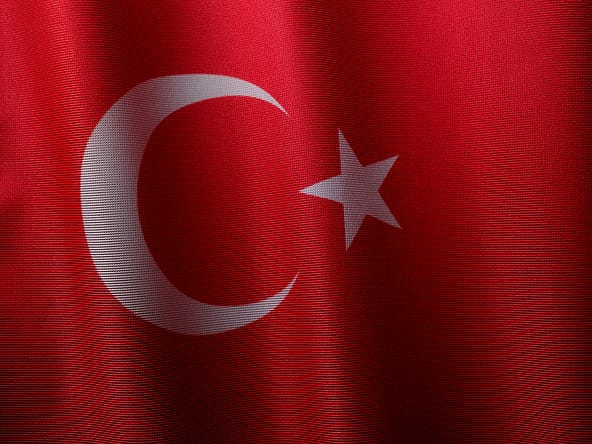With demand in Latin America rebounding, sales to Europe, Asia, and Africa increasing, and a change in show kinds to better appeal to streamers, the nation exported more scripted series in 2023 than any other country outside the US and the UK. However, this momentum may be threatened by growing production costs driven by high inflation.
Behind the scenes, Turkish drama producers have had a difficult few years due to rising domestic prices and declining demand in several important Latin American countries. Don’t be fooled by it, though. With local producers adjusting impressively fast to local obstacles and consumers whose wants are changing rapidly, Turkish drama continues to be one of the most popular program categories in the world.
A closer look reveals that the drama industry in the nation has grown astronomically during the last five years. According to media analyst Parrot Analytics, demand for shows increased by 184% between 2020 and 2023, and Turkey exported more scripted series in 2023 than any other nation outside of the US and the UK.
In contrast, despite the enormous popularity of dramas like Squid Game on Netflix, demand for South Korean series increased by 73% during the same time period. What does Turkey do, then? The ability of Turkish scripted producers to continuously discover new markets while sustaining demand in existing ones has been arguably their greatest accomplishment.
Reviving after Covid
Following the pandemic, demand from buyers in telenovela-loving Latin America has returned to normal, and nations in Western Europe, Asia, and Africa are now contributing to the financial success of Turkish drama producers and distributors.
“Appetite remains as strong as ever in key territories in Central and Eastern Europe, Middle East and North Africa and LatAm,” says Handan Özkubat, director of Turkish drama at distributor Eccho Rights. Latin America “really struggled” after the pandemic, she adds, but the region has experienced a “considerable” bounce back in 2024. Can Okan, founder and chief executive of Turkish producer and distributor Inter Medya, describe the region as a “cornerstone” for his company.
However, Spain is now a key buyer, while demand from Italy has surged, with shows such as Deception, from Istanbul-based Tims&B Productions, developing “passionate and loyal audiences”, Okan says. “There is a widening appetite for global content in Africa, which is now moving onto long-running Turkish series.”
Selin Arat, Tims&B
Selin Arat, director of international operations at Tims&B, agrees that Italy, along with Portugal, are fertile grounds for the company’s productions.
“Africa is coming in strong too, as there seems to be a widening appetite for global content, which started with Indian dramas and is now moving onto long-running Turkish series,” she says, listing Bulgaria, Indonesia and Malaysia as markets that are also returning to licensing Turkish drama.
“Notable growth” has also been experienced in regions like Central and Eastern Europe and the Balkans, says Elif Tatoğlu, director of distribution strategy and sales at Turkish distributor Kanal D International.
My Mother’s Tale, Secret of Pearls, and The Family Burden are among the shows on Tatoğlu’s slate that appeal to viewers due to their “relatable themes and emotional depth.” Additionally, there is expansion in Asia-Pacific and Sub-Saharan Africa, with “renewed interest” from European markets like Spain and Portugal, as well as LatAm, and Brazil specifically.
Özkubat at Beneath The Surface distributor Eccho Rights shares a similar tale. In light of the Turkish series’ “complete success” in Spain, she claims that France and Italy are also developing countries.
Modifying the dynamics
Due to the large number of countries on the customer list, those in charge of Turkish drama’s global expansion are shielded from the swings of particular markets and the shift from linear to streaming.
“Global streamers and broadcasters are both vital to our strategy at Kanal D International,” says Tatoğlu. “Global platforms have introduced Turkish dramas to new audiences, but traditional broadcasters remain our primary partners, especially in regions where linear TV dominates.
“At the same time, we are closely monitoring the shifting dynamics in the industry, where local streaming platforms are rapidly emerging and experimenting with diverse revenue models. For us, balancing these partnerships is key to ensuring maximum reach and audience engagement globally.”
“The local teams at global streamers are in even greater need of content than linear broadcasters as their content is more quickly consumed than successful, long-running free TV drama – hence their stable interest in our content,” she says, adding the caveat that linear broadcasters remain Tims&B’s key buyers. “There has been a shift towards producing bolder, edgier and more daring content for digital platforms.”
Can Okan, Inter Medya
Conventional networks have helped Turkish drama gain traction in many places, but the growing popularity of streamers is also driving a shift in the kinds of series that are being created.
“In Turkey, there has been a remarkable shift towards producing bolder, edgier and more daring content specifically designed for digital platforms,” says Inter Medya’s Okan. “This evolution has captured the attention of both local and global streamers.”
This trend is noted by Tatoğlu, who highlights a “noticeable rise in demand for shorter series”, while Inter Medya has invested heavily in expanding its catalogue to capture this newer market, launching a mini-series-focused concept dubbed the ‘New Generation Turkish Series.’
“Our mini-series opened doors to markets that were previously unreachable, enabling us to connect with new audiences worldwide,” says Inter Medya’s Okan. “Their success has not only put these series in the spotlight but also redirected attention to our long running series, sparking interest from broadcasters and viewers who hadn’t previously considered them.”
The move, he adds, has created “momentum” that has helped to bridge the gap between streamers and broadcasters, further expanding the impact of shows. “While long-running series and broadcasters remain at the heart of our strategy, it is rewarding to see our content thriving across diverse formats and reaching new heights in both quality and scale.”
Global streamers
While linear remains vital, global streamers are also looking at regional acquisitions, with Warner Bros Discovery’s Max in Latin America recently picking up the 300-episode Golden Boy from Eccho Rights. Özkubat says that deal was struck because the show’s success on linear was “irresistible for acquisitions teams from major streamers.”
Indeed, local producers face an extremely difficult struggle, since Turkey’s official inflation rate reached 47%. Numerous factors, including a lack of monetary discipline, excessive government spending, high energy prices, and a substantial current account deficit, have been attributed to the inflationary pressure, which has been mostly generated by structural problems that are much outside the control of any one corporation. At the very least, the export gap is closing due to the telenovela’s widespread appeal.
Arat’s Tims &B Productions is exposed to these fluctuations more than others. She says the “soaring costs” are made far worse by what she terms “the multi-layered economic problems our country is facing at the moment.”
“Some macro-level measures need to be taken of course, but the only thing that comes to mind on a micro level is for advertisers to increase their first-screen spending, which can help boost the liquidity of most networks that are struggling,” Arat says. “The crew and talent fee increments need to be stabilised at some percentage level. Otherwise, it will become very difficult to continue producing.”
Yet this domestic problem is also playing into the larger global effort to push Turkish drama, because local broadcasters normally pay for the bulk of a show’s budget. “Sometimes, with big-budget productions such as period dramas, which require extensive pre-production work, they tend to also pay an advance much earlier in the process.” she explains.
Growth of Co-production
This story of rising costs is also feeding increased appetite for co-productions and Inter Medya’s Okan is leaning into partnerships to get shows on air. His prediction for the next 18 months is largely positive, “with more co-pros and partnerships between Turkish creators, global production houses and streamers.”
“This trend will lead to stories designed with a global audience in mind, incorporating universal themes while maintaining the cultural richness that defines Turkish series. Streaming platforms will encourage bolder themes, shorter formats and genre diversification, which should support more growth” he says.
Kanal D International’s Tatoğlu is of a similar mind, citing co-productions and efficient budgeting as the company’s strategy to mitigate rising production costs. “We anticipate a surge in international collaborations, particularly co-pros,” she says. “Additionally, the rise of streaming platforms will continue to influence the storytelling approach, favouring shorter and high-impact series.”
While she is less optimistic about the sector as a whole, Arat cites the rise of AI and its potential to reduce dubbing costs as one way the market may expand even more.
She claims there will be a slowdown in production if neither macroeconomic nor microeconomic steps are done to reduce rising costs, which are combined with an already fragile ad market. As a result, fewer weekly dramas will be produced; instead, less expensive productions like daily soap operas and unscripted series will replace them.
Özkubat says there is increased pressure on shows to deliver viewers and “cancellations after just a few unsuccessful weeks of ratings are becoming more commonplace”. “There is a growing appetite for shorter series from streamers who want Turkish content that is easier to digest.”
Handan Özkubat, Eccho Rights
But there is also optimism, especially around the popularity of shows with fewer episodes. “There is a growing appetite for shorter series, particularly from international streamers who want Turkish content but need something that is easier to digest,” she says, pointing to Beneath the Surface.
“It features two police officers and a murder investigation, but it is not a crime drama – it is a series about the relationships between the officers, their families and everything else that gets in the way of the investigation.”
Additionally, Okan cites Asia as a growth engine that extends beyond completed tape sales. In what is thought to be the first Turkish scripted format sale into South Korea, the business recently sold remake rights for the O3 Medya drama Love Undercover to a significant production organization in that nation.
In addition to reversing the typical pattern of Korean television series being remade in Turkey, it also demonstrates that this business is skilled at figuring out methods to move shows forward despite any unrest that may be occurring locally.
Source: Parrot Analytics / Image: pixabay.com JanBaby
For more information on Turkish Property click the link





